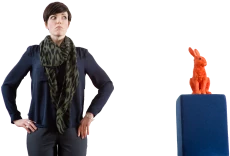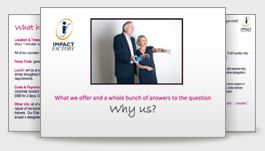Reclaim Your Assertive Birthright
Assertiveness is Your Birthright
The idea that some of us are born more confident than others is false.
We are all born confident.
Naturally Assertive
That means you can re-capture your true birthright, which is to be the naturally assertive person you really are.
As little children, we are all supremely assertive.
Up until the age of about 3, we display all the characteristics of confident human beings:
- we are able to express our needs freely
- we trust others unconditionally
- we are innocently allowed to be ourselves
- we are wide-eyed and endlessly curious about our world
- we have fun, laughter and play
- we are instinctively creative
- we can express our feelings out loud whether joy or sadness
- we live totally in the present
- we have a huge potential for growth
The Loss of Assertiveness
The trouble is, things don't last. Around the age of 3, when our thinking brain kicks in, we start to learn that the world isn't like we thought it was at all.
As a result of what our parents, siblings, and teachers tell us, we learn that freedom must be restricted.
Play activity has no longer any value unless it is useful.
Suspicion and Fear
Others are no longer sources of interest and enjoyment but strangers to be treated with suspicion.
And needs that were expressed and promptly met now have to take their place in the queue.
In short, out goes unconditional love and in comes blame and fear.
Our response is to protect ourselves against the world and we do that with 3 kinds of programmes:
1. The Blame Programme
The Blame Programme teaches us that when things don't go the way they should, someone or something must be to blame.
This creates two versions of the programming.
Someone Else to Blame
We look outward at someone or something to blame. We set ourselves up in the role of Persecutor.
Because nobody seems to come up to the mark, we take it upon ourselves to be critic, judge and condemner.
Self Blame
We look inward and blame ourselves. It is our fault when things go wrong. We set ourselves up in the role of Victim.
As victims, we hope that others will recognise our unhappiness and come to rescue us.
In one simple programming, we thus create not assertiveness, but aggressive and passive responses that can last a whole lifetime.
2. The False Self Programme
When we lose our true assertive self that belongs to babyhood, we create a new programme based upon the now-hostile world.
False Self Beliefs
Some of the beliefs of the False Self programme are
- forgiveness is weakness
- you change others by criticising them
- your anger shows you're right and others are wrong
- revenge helps you to establish justice
- it is weakness to ever let yourself be vulnerable
- judging others proves what a good character you are
- you protect yourself by attacking people and/or withdrawing love in order to control them through fear, guilt and shame
- manipulating and deceiving others can help you to become successful.
3. The False Life Script Programme
The false life-script programme is the third programme we learn and it satisfies our early life needs for some kind of identity.
This programme tells us who we are, what we are good at or bad at, how well we conform, how well we relate to others and how the rest of our lives should be led.
Unfortunately, the programme is false because it is written by others, not by us.
Consequently, the programme gives us
Other people's labels for us, such as
Naughty Nigel
Earnest Eric
Solemn Sue
Their roles for us to perform, such as
Dutiful Housewife
Dynamic Executive
Happy Handyman
The life script not of assertiveness, but of being either a victim of life or a persecutor in life.
Reclaiming Your True Assertiveness
Only when we realise the falseness of the life-script programme can we break free of it.
As a result of our early experiences of dealing with the world, most of us lose our natural assertiveness.
We come to believe that it is normal to respond to the world in either aggressive or non-assertive modes, with all the miserable consequences that these behaviours produce.
Reclaim Your Assertiveness
But our assertiveness hasn't gone away. It is still there and it is our birthright. If you want to re-claim assertiveness, just read again what you were like as a little child, and be assertive:
- we are able to express our needs freely
- we trust others unconditionally
- we are innocently allowed to be ourselves
- we are wide-eyed and endlessly curious about our world
- we have fun, laughter and play
- we are instinctively creative
- we can express our feelings out loud whether joy or sadness
- we live totally in the present
- we have a huge potential for growth
And, remember, that's who you really are.
This article was contributed by Eric Garner
Assertiveness Training
Impact Factory runs
Open Assertiveness Training Courses
Tailored Assertiveness Training
and personalised
for anyone who is interested in
Assertiveness Issues


















